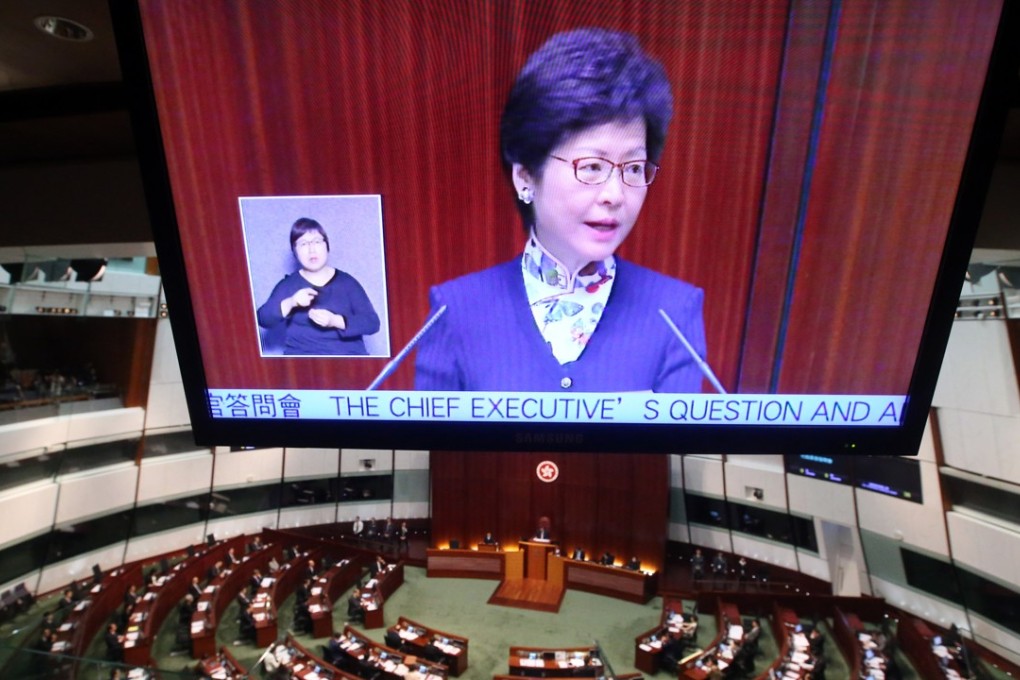Flying Sand | Slimmed-down policy address, but how about slimmed-down government? Here are two places to start
Niall Fraser says the Consumer Council and Obscene Articles Tribunal are both well past their sell-by dates and have proven woeful value for taxpayers’ money

On Wednesday the first woman chief executive of the Hong Kong Special Administrative Region of the People’s Republic of China, Carrie Lam Cheng Yuet-ngor, will deliver her maiden policy address to members of the Legislative Council.
Or, in other non-words, at Legco the CE of the HKSAR of the PRC will outline to political representatives of the DAB, FTU, BPA, FLU, NPP, DP, NWSC, PTU and others what she plans to achieve in her job.
Her speech is purported to be framed around the theme of “hope and happiness”, which sounds just vacuous enough to accommodate the troublesome elephant of political division and strife in the room.
That aside, and in the spirit of a slimmed-down delivery, I have a couple more – only half-joking – suggestions to help lubricate the wheels of public administration.

